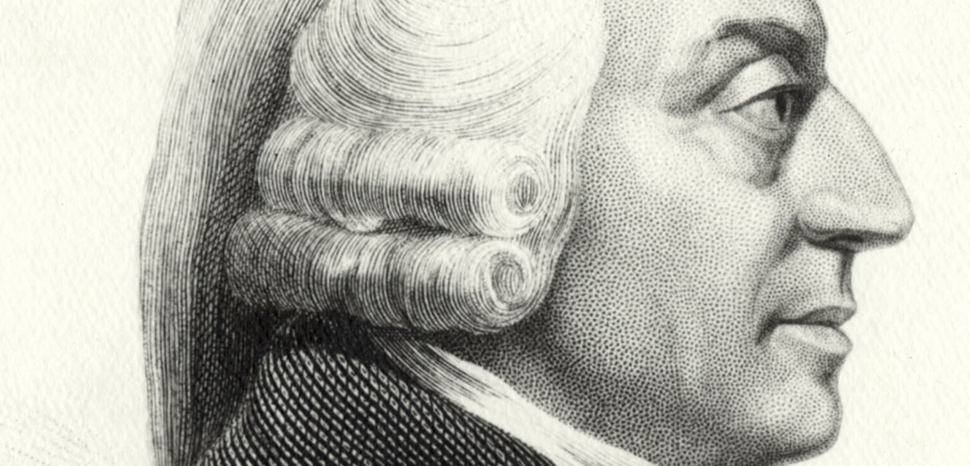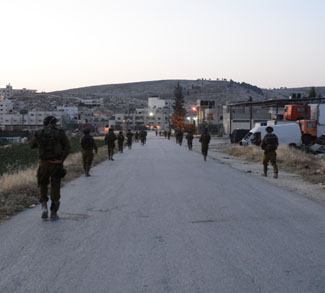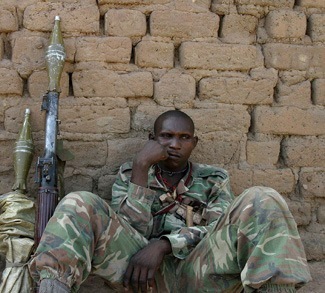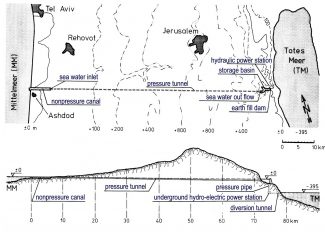In the last few years, the preservation of the so-called “liberal world order” has become a commonplace catchphrase in much of the Western world, especially amongst policymakers, scholars, and journalists. The cornerstone of this project encompasses ingredients such as a rules-based international system, the need for an institutionalized governance as a guarantor of multilateral collaboration, economic globalization as a path to a shared harmonious prosperity, and the expansion of liberal democracy on a global scale as the natural course of history. According to its believers, this pursuit is a priority to ensure the prevalence of everlasting peace in a better world. They are so convinced of the theoretical and moral virtues that underpin this vision that its desirability is automatically taken for granted. However, it is pertinent to assess ‒ from a dispassionate viewpoint ‒ if this utopian dream is even achievable.
The ideological roots of this transformative endeavor include contributions like ‘Whig historiography’ and Wilsonian idealism, which reflect the anthropologically optimistic premise that there is an arc of the moral universe that bends towards justice and progress. The messianic desire to declare “the end of history” in the early post-Cold War era was inspired by the same creed. Likewise, the “Davos men” ‒enthusiasts of a borderless world in which technocratic supranational structures would permanently supersede the ‘malign’ and ‘anachronistic‘ influence of high politics ‒ also share the perception that these ‘truths’ are self-evident.
Yet, the intellectual skepticism of the realist school ‒ which emphasizes the importance of power, security, stability, and balance above all else in the dangerous arena of international politics ‒ about its convenience and feasibility is well-known. Realists contend that quixotic quests to reach a utopian horizon, even if it is motivated by good intentions, can bring about nightmarish outcomes, including war, bloodshed, and chaos. For realism, daydreaming is a recipe for disaster. However, the main problem with the idea of establishing a liberal world order is not the challenge posed by realist thinkers; rather, the most significant shortcoming of said model is that none of its underlying assumptions are supported by empirical reality or historical experience, as the following illustrates.
Mythical Gardens of Eden and Political Jungles
Liberal idealists contend that universal rules of behavior are necessary for the well-being of the “international community.” These codes will ensure that the “global village” becomes a peaceful garden rather than a ruthless Darwinian jungle. However, this vision is inaccurate because it overlooks quintessential political realities that cannot be ignored only because they are unpleasant. First, as the English philosopher Thomas Hobbes explained centuries ago, the enforcement of rules presupposes the existence of a legitimate uncontested authority which holds a monopolistic coercive power. Such a thing is unnatural in an international system in which anarchy is a structural feature rather than an annoying bug. Under such conditions, all states have no choice but to increase their own power in order to protect their security and satisfy their interests, even disregarding rules if necessary. There are many recent examples which show that powerful states can seldom be held accountable ‒ let alone punished ‒ for their blatant violations of international law, including acts of war, the instigation of coups, covert interventions, sabotage, acts of espionage and even assassinations. Relying on one’s own capabilities and resources offers a much higher degree of security than blind trust in written or unwritten rules only backed by promises of good will. As the Greek historian Thucydides put it, justice can only prevail when there is a balanced correlation of forces. In contrast, when a profound disparity prevails, the strong do what they can and the weak suffer what they must.
Another element that needs to be highlighted is that rules are never neutral. They serve political masters. Not surprisingly, rules are made by victors who have managed to vanquish their rivals and reach a superior hierarchical position. Paraphrasing Von Clausewitz, a conqueror is always a lover of rules that enable the continuation of the status quo. Furthermore, the existence of rules also reveals asymmetric power relations between those who make them based on their preferences and those that have no choice but to follow them, regardless of whether they like them or not. Accordingly, there can be no universal legitimate rules because those states that do not find them favorable for their interests have a strong incentive to overturn them and, if possible, rewrite them. Likewise, there is no such thing as an “international community.” Such term is a vague abstraction that has no real substance. In the political sphere, there is a myriad of heterogenous polities that can co-operate or clash based on the alignment of their interests. Hence, the pursuit of particular interests can be whitewashed with universalistic rhetoric, particularly in the case of empires that seek to place many different nations under their umbrella.
Yet, perhaps the most damning indictment of this idea is the fact that it ignores that politics is not about procedures. The nature of politics involves power, struggle, and control. In this regard, man is a political animal whose behavior is driven by what Hans Morgenthau called the “animus dominandi,” a natural inclination to rise above his peers in matters related to power, prosperity and prestige. The liberal gospel seeks to abolish the concept of the political identified by Carl Schmitt ‒ the collective distinction between friends and enemies ‒ a distinction that often turns deadly when things become ugly and polities have no choice but to engage in existential struggles. States can abolish the concept of the political if they wish to pretend that the impersonal forces that fuel conflict can be tamed, but only at their own peril because the logical outcome of such folly is to be ultimately crushed by somebody that has not forgotten what the political is all about. Even if certain states prefer not to be interested in war, war might be interested in them anyway.
Political Realities Supersede Institutional Illusions
Liberal internationalists regard international institutions as apolitical instruments that ensure the prevalence of collaborative efforts over rivalries, the generation of consensual agreements, and the formulation of solutions for common problems. According to this view, institutions have the ‘alchemical’ power to transform swords into ploughshares, former enemies into stakeholders and maybe even partners. This is the spirit that undergirds the United Nations and its overlapping offshoots, as well as various regional entities.
Admittedly, institutions are helpful to mitigate some of the ugliest consequences of conflicts and the impact of humanitarian crises. They also can operate as facilitators that broker diplomatic solutions, forums of deliberations, and sources of information that promote a better situational understanding about the significance of problematic issues. Nevertheless, they can hardly regulate the behavior of states or discourage aggression as a way to settle disputes because they lack both an autonomous supranational authority and the material capability to punish transgressions. As John Mearsheimer argues, the overall usefulness of institutions per se as anchors of stability and collective security is rather marginal at best. The role of institutions is negligible in the prevention of great power rivalries or strategic competition over global hegemony. Even the record of their intervention in much modest tasks like peacekeeping operations is feeble and sometimes even questionable. In this regard, as Robert Kaplan observes, the foresight and preparedness provided by intelligence services are better assets in the prevention of tragedies than the good will of humanitarian institutions.
In addition, international institutions serve the interests of their concrete creators, not the abstract concept of mankind. By definition, there is no such thing as an apolitical institution. Not surprisingly, they are headed ‒ either formally or tacitly ‒ by powerful states whose leadership projects a strong gravitational pull that attracts a constellation of junior partners. For example, the EU would unravel without the Franco-German axis, which operates as its linchpin. Likewise, the way decisions are made in the nerve centres of these organizations and how benefits are shared also reveal profound political and economic disparities amongst members. On paper, the principle of equality can formally be enshrined in their charters, but everybody knows that some opinions matter more than others. Both the United States and Haiti are members of the Organisation of American States (OAS), but no one seriously believes that they belong to the same category.
In addition, states compete with one another to control institutions so that they can harness them to favor their interests. They can either try to reshuffle the distribution of power within an institution or even launch institutions under their own tutelage if they believe that the existing frameworks are not useful for their interests or cannot be co-opted. China’s ongoing efforts to establish a system of parallel institutions that seek to mirror and maybe even overtake their Western counterparts is an enlightening example. Finally, institutions can be created as pillars of military coalitions that are convenient vehicles to join forces against common enemies, such as NATO or the Warsaw Pact. In other words, institutions can operate as weaponized instruments of statecraft. Similarly, regional trade blocs (e.g. USMCA) and economic alliances (e.g. OPEC) intend to alter the balance of power in the sphere of markets at the expense of other players or competitors. In a nutshell, international institutions embody the continuation of realpolitik through other means, not an alternative.
Economics and Politics as Two Sides of the Same Coin
The order of international economic governance established in Bretton Woods towards the end of World War Two is viewed by liberals as a pivotal watershed in the long march towards conformation of a system in which free trade would bring global prosperity and mutually beneficial connections that would discourage the recurrence of war. Nonetheless, despite its liberal external appearance, Bretton Woods was underwritten by factors related to security, raison d’état, and power from the very beginning. The birth of Bretton Woods marked a negotiated hegemonic transition in which, after a prolonged imperial exhaustion, Britain willingly relinquished its position as the dominant Western power to the US. As a result of this consensus, European and Asian nations obtained access to American consumer markets, open sea lanes as a facilitator of all sorts of international exchanges ‒ a service provided by the US Navy ‒ a reliable reserve currency backed by gold and the generous availability of credit in international capital markets. In return, the Americans secured the political legitimacy of their position as the undisputed military, geopolitical, and diplomatic leader of the Western world during the Cold War, a period of intense strategic competition between rival superpowers.
With the demise of the Soviet Union, globalization took off as a hallmark of “Pax Americana.” Echoing the ill-fated prophecies of Norman Angell ‒ formulated shortly before War World One broke out ‒ about free trade as a force that made war unprofitable and unthinkable under “Pax Britannica,” the supporters of globalization believe that the planetary expansion of free markets would substitute geopolitical rivalries with peaceful economic competition. However, as Kenneth Waltz noted, interdependence does not lead to peace or harmony. Instead, the creation of vast networks of interwoven interests that fuel increasingly deeper interactions encourages discord and conflict amongst players whose agendas cannot be reconciled. Furthermore, in a zero-sum world, strategic logic dictates that every single vector of complex interdependence ‒ including energy, trade, finance, currencies, telecom, logistical infrastructure, digital platforms, social media, and even migratory waves ‒ provides asymmetric advantages that can be manipulated or weaponized for offensive or defensive purposes, especially when the use of hard power is not possible or potentially counterproductive. As the European Council of Foreign Affairs argues, globalization has shaped unconventional chessboards in which “connectivity wars” are being fought. In short, instead of creating a “Pax Mercatoria,” it has brought new expressions of conflict.
Finally, the doctrine of free markets is flawed in the sense that its oversimplification of reality cannot explain complex phenomena that have meaningful implications for international relations. In certain economic sectors, the rise of oligopolistic market structures has eclipsed competition. As a result, large corporate entities ‒ Wall Street investment banks, credit rating agencies, hedge funds, high-tech firms from Silicon Valley ‒ have developed a degree of power and influence that was not seen since the days of the Dutch East India Company. Blackrock, Facebook, Huawei and Goldman Sachs are more important than many states in the realm of high politics. Another example is the financial firepower of the SWIFT network in the implementation of targeted sanctions. On the other hand, the transnational circulation of all sorts of illicit flows could not be understood without the windows of opportunity provided by deregulation and liberalization policies. The governance structure of black markets is a clandestine underworld in which there are strange bedfellows, including both states and non-state actors. Besides, structural phenomena like the financialization of economies, the incidence of systemic crises and rampant short-term speculation present meaningful challenges for economic national security.
In addition, the intervention of the state in the economic domain ‒ particularly in areas that are critical for national security ‒ has become stronger than ever before. The ongoing revival of neo-mercantilism is reflected in trends like the projection of state-owned firms, trade wars, the race for the control of strategic natural resources (metals, energy, rare earths, fresh water, arable land), economic espionage, the implementation of industrial policies to achieve superiority in the field of advanced technologies, the rise of national champions, the conformation of regional trade blocs and the struggle to reshape the global financial and monetary order. Finally, in the case of the US, national security is dictating the pertinence of reshuffling the structure of supply chains in strategic industries in order to bring their integrated production as close to home as possible, a process that has been referred to as ‘near-shoring.’ Washington, once the most ardent supporter of liberal globalization, is gradually shifting towards economic nationalism because its commitment for liberal trade policies had become detrimental for American national interests and beneficial for China, its greatest strategic competitor.
The economic sphere of markets, trade, money and wealth is no longer confined to the domain of ‘low politics.’ It is far too important for statecraft to be placed in the hands of laissez-faire neoclassical economists.
The Deepening Crisis of Liberal Democracy
The downfall of the Soviet Union projection the illusion that, under the umbrella of the so-called ‘unipolar moment,’ the ‘end of history’ would be reached. This provided a chance for Western liberals to remake the world in accordance with their worldview. Nations seen as ‘unenlightened’ would modernize and flourish by embracing liberal democracy. The missionary zeal of neoconservative thinkers and politicians ‒ paradoxically inspired by the Trotskyist concept of ‘permanent revolution ‒ went even farther. These ideologies believe that launching a worldwide military crusade is needed to get rid of ‘outposts of tyranny’ and ‘rogue states’ so that the promise of a new global utopia could be fulfilled.
This vision is out of touch with reality for several reasons. First, liberalism and democracy are not synonymous. They can coexist under certain circumstances, but they do not necessarily presuppose each other. There are many examples. The Muslim Brotherhood ‒ a profoundly illiberal group whose regime was later overthrown by the military ‒ was democratically elected in Egypt. Brexit was an illiberal decision reached through democratic processes. Leaders like Donald Trump and Jair Bolsonaro were certainly illiberal in more than one way, but they came to power democratically. The reluctance of Hungary and Poland to follow liberal postmodern beliefs is democratic in the sense that it reflects the (illiberal) preferences of most citizens regardless of what the Brussels’ unelected bureaucracies would prefer. Likewise, as Kenneth Waltz argued, the ‘democratic peace theory’ is a myth that vanishes when one considers that, during the Cold War, the US masterminded coups to oust democratically elected leaders in places like Guatemala, Chile, and Iran because they were not aligned with Washington’s national interests. In the same period, the Americans courted undemocratic allies ‒ military juntas, strongmen, monarchs, and even militant jihadists ‒ because they were useful to counter the Kremlin’s geopolitical projection in the third world. In other words, realpolitik matters more than the preservation of democracy.
Moreover, there are other problems with this misleading expectation. Rather than imitating Western mores, other states ‒ such as China, Russia, Iran ‒ unapologetically champion alternative illiberal political models as suitable for their own civilizational worldviews, contextual circumstances, preferences, and historical backgrounds. In Western intellectual circles, these states are often portrayed as ‘backward’ or ‘heretical’ because they reject the flagship tenets of the liberal creed, but they are the product of both historical imperial traditions and the contemporary circumstances of the digital age. Plus, the sophisticated methods of their revisionist geopolitical strategies ‒ which embrace technological change, complex interdependence, and non-military vectors of power projection ‒ demonstrate a strong determination to reshape the world of the 21st century, not to turn back the clock or freeze time. As the American publication The Atlantic states, they herald non-liberal versions of modernity.
Other states are gradually or partially embracing illiberalism, including El Salvador, Hungary, India, Israel, Mexico, Poland, and Turkey because they believe that such framework responds better to their own interests, identities and realities, regardless of what The Economist or The New York Times have to say about it. Liberal thinkers bitterly criticize this controversial phenomenon as “democratic backsliding” but, from an unjudgmental perspective, such a development demonstrates that ‒ rather than becoming more and more homogenous ‒ the universe of organic political lifeforms is increasingly plural. In addition, the failure to “export” liberal democracy to places like Afghanistan has shown that nations are reluctant to unwillingly adopt foreign models of political organization, especially if they are being imposed through military strength. The neoconservative endeavor of ‘nation-building’ has not only been a dismal failure; it has produced counterproductive results. Rather than becoming an example of Jeffersonian democracy, Afghanistan is ruled once more by the Taliban, who are stronger than ever following a chaotic withdrawal of US forces. Finally, in multiple Western liberal democracies, there are ongoing political crises due to polarization, discontent triggered by technocratic policies seen as unpopular, overt acts of political violence, ethnic tensions, “culture wars,” mounting difficulties in building functional ruling coalitions, and a general rise of illiberal political forces. In summary, no amount of wishful thinking can bury history.
Concluding Remarks
The theoretical idea of establishing a liberal world order is not supported by empirical facts on the ground. Such a thing has never existed in the first place and its eventual materialization would require the transformation of both human nature and the structure of the international system, both of which remain unchanged. Reality is stubborn and unpleasant. Under these circumstances, there is no ‘new man’ to speak of. Since a liberal world order is an elusive mirage, it would be wise to consider realistic alternatives, including an illiberal form of US hegemony, the regional fragmentation of the world order as a result of a bipolar or multipolar configuration, conflict or chaos. Those who refuse to see the proverbial writing on the wall and dismiss these possibilities only because they do not sound optimistic will likely experience a rude awakening.
Nevertheless, this illusion is not just a cognitive or intellectual shortcoming. A flawed interpretation of reality can lead to pragmatic mistakes and nasty consequences. After all, the road to hell is often paved with good intentions.
The views expressed in this article belong to the authors alone and do not necessarily reflect those of Geopoliticalmonitor.com.




